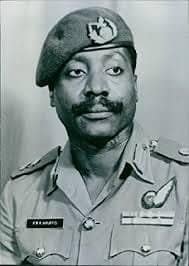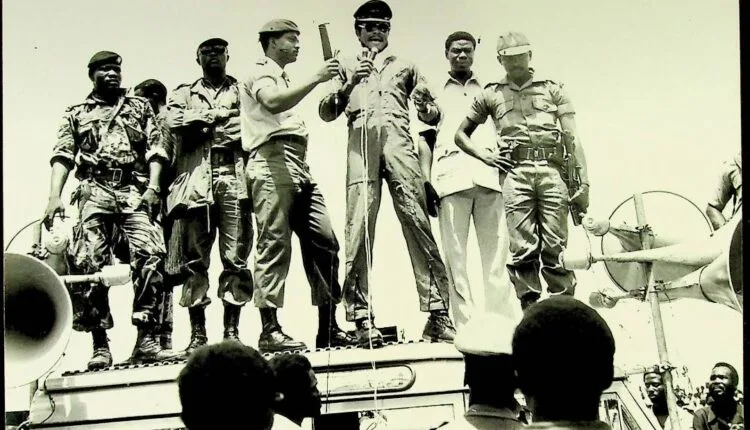On June 4th, 1979, Ghana awoke to a seismic rupture in its political history a military insurrection led by Flight Lieutenant Jerry John Rawlings and a group of junior officers. Framed initially as a response to rampant corruption, economic mismanagement, and military decadence, the June 4th Uprising did not just upend a regime; it instilled a lingering question in the national consciousness: What is the cost of impunity in public life?
Today, over four decades later, the uprising remains one of Ghana’s most contested and commemorated events a moment when the line between justice and retribution blurred, and when power momentarily passed to those claiming moral clarity.
Historical Context: A Nation at the Edge
By the late 1970s, Ghana was mired in inflation, scarcity of essential goods, crumbling infrastructure, and public disenchantment. The Supreme Military Council, led by General Fred Akuffo, had failed to stem the tide of economic deterioration and perceived elite corruption. In this atmosphere of despair and rising disillusionment, Rawlings emerged as a messianic figure for many. His call for a “housecleaning exercise” resonated with a population eager for reform — or at least, a break from the status quo.

The June 4th Uprising, a spontaneous and bloody revolt, paved the way for the Armed Forces Revolutionary Council (AFRC), which assumed power briefly before handing over to a civilian administration. In that interlude, public executions of former heads of state and senior military officers shocked the nation and the world, creating a deep moral and political paradox: Was this justice, or vengeance?
Beyond the Gunfire: Enduring Legacies
- A Warning Against Corruption and Elite Arrogance
At its core, the uprising was a grassroots reaction to elite impunity. It highlighted the dangers of unaccountable leadership and the festering anger that can erupt when institutions fail. In many ways, it was a national catharsis — one that forced the country to confront the consequences of systemic rot. - A Complicated Heroism
Rawlings would later lead another coup in December 1981, eventually becoming a democratically elected president. His role in June 4th has thus been subject to dual interpretations: as a patriotic act of cleansing or a populist grab for power. This duality reflects the broader tension in Ghanaian politics between idealism and pragmatism. - The Unfinished Conversation on Justice
The uprising introduced a form of radical justice that left many uneasy. While some praised its message of accountability, others decried the loss of due process. Ghana’s post-June 4th history reflects an ongoing struggle to balance moral imperatives with democratic norms.
June 4th Today: Memory as Moral Compass
In 21st-century Ghana, the significance of June 4th is not merely historical it is instructive. Corruption, inequality, and political disenchantment have not vanished. If anything, the uprising serves as a cautionary tale: When democratic institutions erode, people may turn to radical alternatives.
The commemoration of June 4th, often politicized or sidelined, should instead be reclaimed as a moment for civic reflection. It is an opportunity to ask:
- Are our institutions strong enough to hold power to account?
- Do we remember, not just the pain of the past, but the lessons it was meant to teach?
The June 4th Uprising was neither a beginning nor an end it was an inflection point. It forced Ghanaians to confront uncomfortable truths about leadership, justice, and the fragility of democracy.
Stick And Stay With Us For More Education Articles :http://Theirsondiary.com









